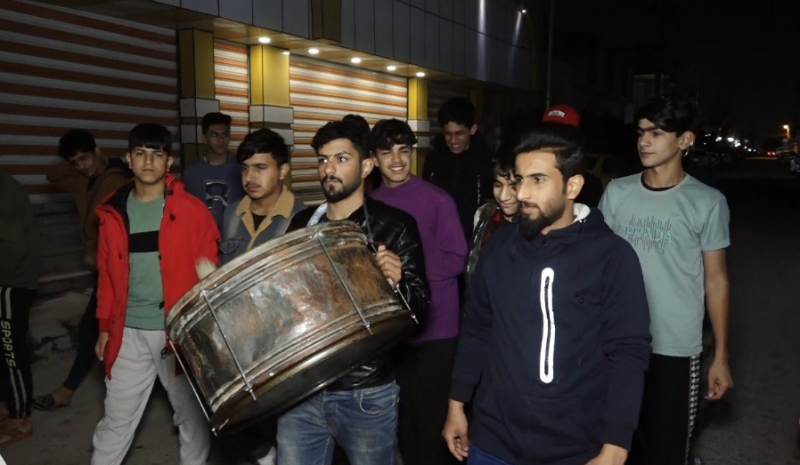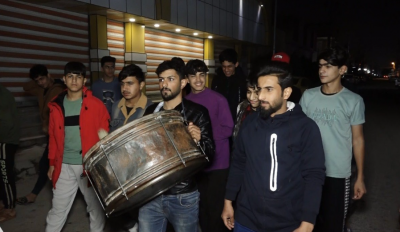The profession of "musaharati," which emerges with the arrival of the holy month of Ramadan and concludes when it ends, has a history spanning over 1000 years. This profession has become a folkloric symbol for the Iraqi people; despite entering the second millennium, its brilliance has not faded during the holy month. The musaharati is more of a Ramadan folklore than a profession in the conventional sense, wherein several individuals take on the duty of waking up the sleeping community during suhoor, so families can prepare for the meal and engage in the worship associated with Ramadan, as well as ready themselves for the next day of fasting.
(Ali), a young man from the city of Kufa, has inherited this profession from his ancestors. Every night during Ramadan, he roams the alleys and streets near his home late into the night, carrying a drum and awakening people with phrases and chants he recites. A reporter from the Iraqi News Agency (INA) accompanied (Musaharati Ali) through the alleys of Kufa, and at the beginning of the conversation, he said: "We locally refer to this profession as Abu Tabila or the musaharati, which has been passed down through generations for the past 25 years. My grandparents practiced it, and I continue to do so to earn rewards by waking up the sleeping residents during suhoor."
Another young man, (Ammar), who also practices the musaharati profession, proudly embraces this Arab heritage. Since he was 13, he has begun his nightly rounds with some friends or cousins, carrying a drum through the streets of his neighborhood, chanting phrases like "O servants of God, suhoor, may God have mercy on you," while rhythmically beating the drum.
(Hajj Qassem), a middle-aged man from Najaf, shared his thoughts on this folk heritage: "In the past, people would sleep early, especially in summer. We would gather for family gatherings on rooftops, then go to bed early, and the musaharati would be the only one staying awake to wake families for suhoor. Therefore, he had a special significance for us." Qassem added, "Even with the progress we've made, this Ramadan heritage still holds a place in the hearts of Iraqis. While customs have somewhat changed, with people staying up for social gatherings or worship in mosques and holy shrines, the musaharati continues to roam the neighborhoods to preserve this folklore."
Young (Muktada Ali) expressed, "Since I was a child, I would hear the sound of the drum echoing in our ears along with words I still remember. Even today, we only partake in suhoor upon hearing the musaharati's voice as he passes by our house."




